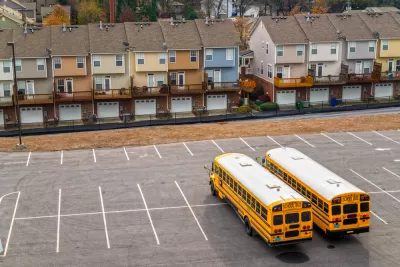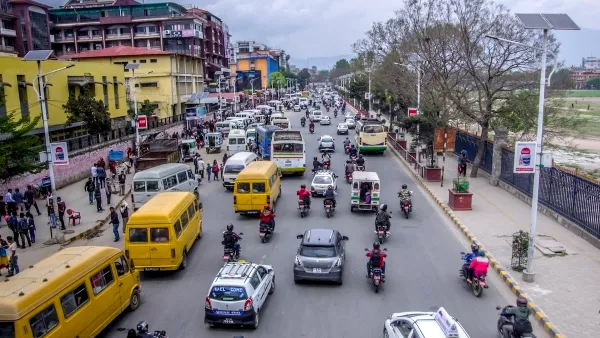The American Left, according to Ezra Klein, is starting to acknowledge the role of supply-side thinking in public policy.

Despite its association with the right wing, writes Ezra Klein in an op-ed, "you can see something new and overdue emerging in American politics: supply-side progressivism." Klein goes on to explain "the driving theory of most of the progressive policy agenda, most of the time: give people money or a moneylike voucher they can use to buy something they need or even just want." This, he argues, often makes progressives "uninterested in the creation of the goods and services they want everyone to have. This creates a problem and misses an opportunity" that leads to scarcity and rationing. "You can see the poisoned fruit of those mistakes in higher education and housing," for example.
This philosophy, according to Klein, "also misses the opportunity to pull the technologies of the future progressives want into the present they inhabit. That requires a movement that takes innovation as seriously as it takes affordability." Klein points to "Aaron Bastani’s 'Fully Automated Luxury Communism,' a leftist tract that puts the technologies in development right now — artificial intelligence, renewable energy, asteroid mining, plant- and cell-based meats, and genetic editing — at the center of a postwork, postscarcity vision." But Bastani warns that 'the same technologies could become accelerators of inequality and want if they’re not embedded in thoughtful policies and institutions."
A better world in which we can solve problems like climate change "requires inventions and advances that render old problems obsolete and new possibilities manifold," writes Klein. But he sees hope in recent developments that acknowledge the importance of supply-side thinking. "Much of the spending in the Biden agenda is dedicated to increasing the supply of renewable energy and advanced batteries while building the supply of carbon-neutral transportation options. Democrats have realized that markets alone will not solve the climate crisis."
FULL STORY: The Economic Mistake the Left Is Finally Confronting

Planetizen Federal Action Tracker
A weekly monitor of how Trump’s orders and actions are impacting planners and planning in America.

Maui's Vacation Rental Debate Turns Ugly
Verbal attacks, misinformation campaigns and fistfights plague a high-stakes debate to convert thousands of vacation rentals into long-term housing.

Restaurant Patios Were a Pandemic Win — Why Were They so Hard to Keep?
Social distancing requirements and changes in travel patterns prompted cities to pilot new uses for street and sidewalk space. Then it got complicated.

In California Battle of Housing vs. Environment, Housing Just Won
A new state law significantly limits the power of CEQA, an environmental review law that served as a powerful tool for blocking new development.

Boulder Eliminates Parking Minimums Citywide
Officials estimate the cost of building a single underground parking space at up to $100,000.

Orange County, Florida Adopts Largest US “Sprawl Repair” Code
The ‘Orange Code’ seeks to rectify decades of sprawl-inducing, car-oriented development.
Urban Design for Planners 1: Software Tools
This six-course series explores essential urban design concepts using open source software and equips planners with the tools they need to participate fully in the urban design process.
Planning for Universal Design
Learn the tools for implementing Universal Design in planning regulations.
Heyer Gruel & Associates PA
JM Goldson LLC
Custer County Colorado
City of Camden Redevelopment Agency
City of Astoria
Transportation Research & Education Center (TREC) at Portland State University
Jefferson Parish Government
Camden Redevelopment Agency
City of Claremont





























